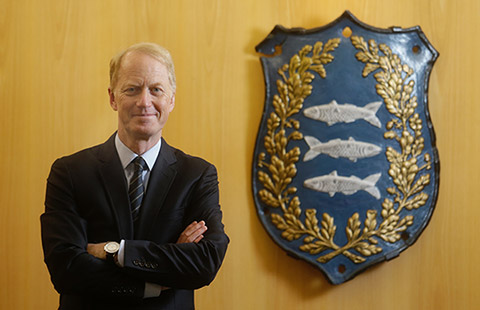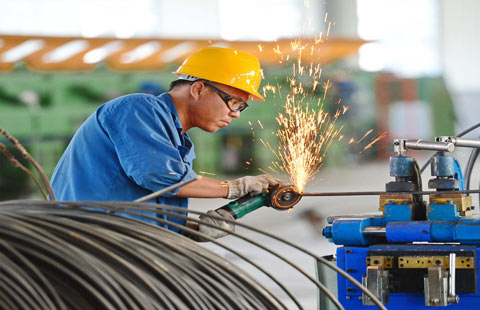Global governance needs the wisdom of China
In a time of global economic downturn, changing geopolitical patterns and economic uncertainty, globalization is encountering difficulties and the world economy is suffering in the confusion.
China's proposals at the G20 Hangzhou Summit to innovate growth patterns, improve international financial governance, revitalize international trade and investment as key engines of growth, and boost inclusive and interconnected development, point the way for the world.
China's prescription for world economic development has been endorsed globally, because it reflects the country's wisdom in the five aspects listed below:
First of all, China envisages a change to the old ways of Western-led global governance. Now, East and West can combine to govern together, an idea that has mobilized the enthusiasm of many parties around the world.
Second, China has abandoned traditional models that focused on exclusivity and dominance, promoting instead a way of thinking built on inclusiveness, interconnection, mutually beneficial cooperation and win-win situations. Such an approach aims to consider all options and solutions.
Third, by adopting innovative, pragmatic, flexible and efficient means, China sees trade and investment as two major engines of development, and calls on all countries to oppose either trade or investment protectionism, and to speed up the process of globalization.
Fourth, in terms of the approach to governance, the country's focus on both short- and long-term solutions prevents the world economy from fluctuating violently, and ensures it can achieve better development in a stable environment.
Last but not least, China integrates bilateral economic and trade cooperation with multilateral and regional partnerships, and considers the Asian Infrastructure Investment Bank, the Regional Comprehensive Economic Partnership and the Belt and Road Initiative as development goals for building a community of shared destiny for all humanity.
One of the reasons China's governance proposals have been welcomed is that the world has seen Chinese leaders' and the Chinese people's confidence in the future through its 13th Five-Year Plan (2016-20) and economic development.
Most important of all, China backs up its words with real work. The nation has cut 250 million metric tons of coal output, and 6,000 metric tons of steel output, as it has strengthened supply-side structural reform.
Henry Kissinger once wrote in World Order: "By any standard, China has regained the stature by which it was known in the centuries of its most far-reaching influence. The question now is how it will relate to the contemporary search for world order."
President Xi Jinping's upcoming attendance to the World Economic Forum this year not only shows that China attaches great importance to the global platform for dialogue, but also indicates that the country will offer more Chinese wisdom and voices to the world in future.
The author is vice-president of the China Center for International Economic Exchanges. He is also a former vice-minister of commerce.
- Chinese envoy calls for common efforts with G77 in global economic governance
- China devotes to global economic governance
- Xi stresses the importance of pursuing new models of global growth, cooperation, governance and development
- Make the world great – part one: global governance
- What is China's role in global governance?

















